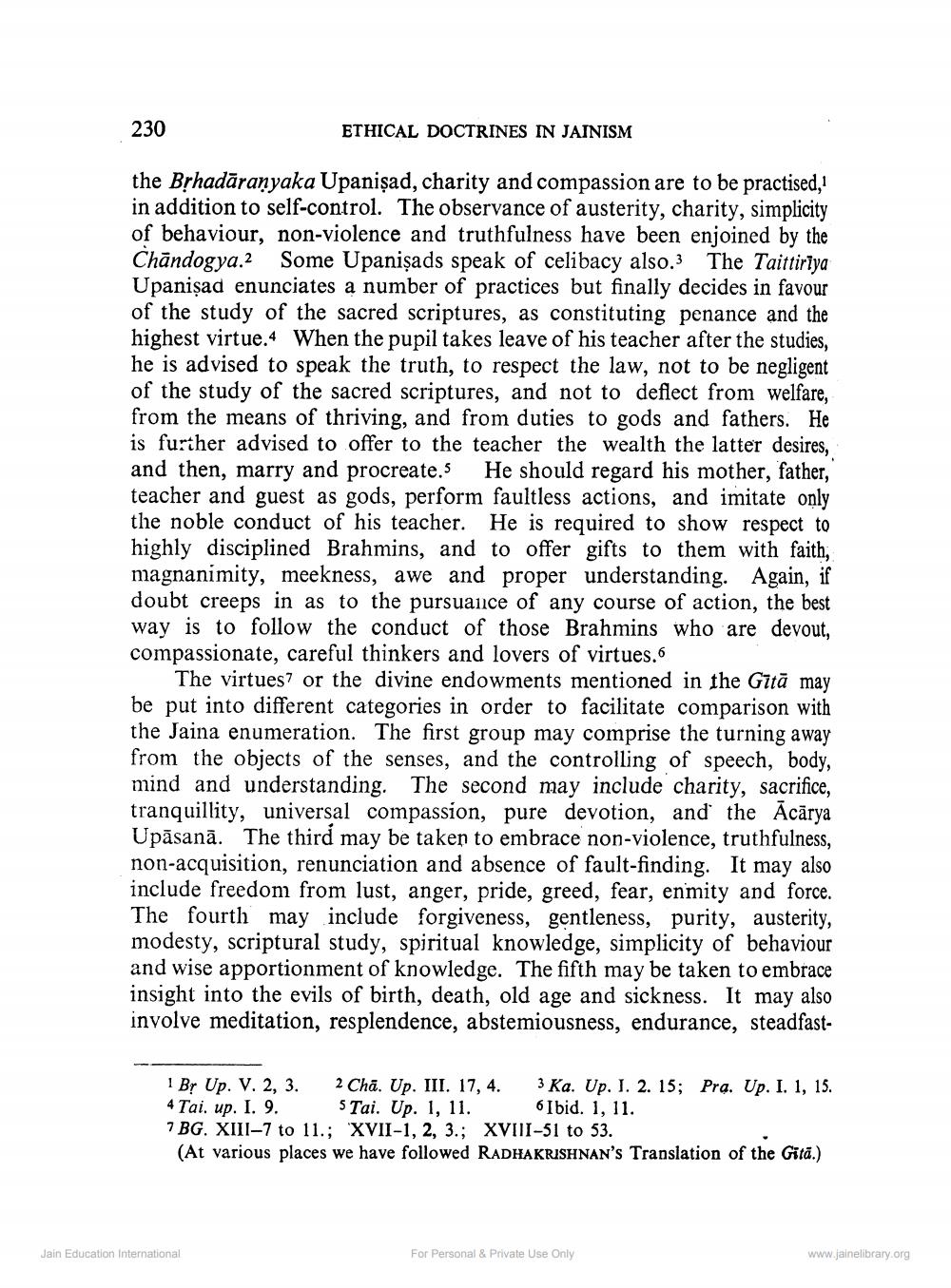________________
230
ETHICAL DOCTRINES IN JAINISM
the Brhadāraṇyaka Upanişad, charity and compassion are to be practised, in addition to self-control. The observance of austerity, charity, simplicity of behaviour, non-violence and truthfulness have been enjoined by the Chāndogya.2 Some Upanişads speak of celibacy also.3 The Taittiriya Upanişad enunciates a number of practices but finally decides in favour of the study of the sacred scriptures, as constituting penance and the highest virtue. When the pupil takes leave of his teacher after the studies, he is advised to speak the truth, to respect the law, not to be negligent of the study of the sacred scriptures, and not to deflect from welfare, from the means of thriving, and from duties to gods and fathers. He is further advised to offer to the teacher the wealth the latter desires, and then, marry and procreate. He should regard his mother, father, teacher and guest as gods, perform faultless actions, and imitate only the noble conduct of his teacher. He is required to show respect to highly disciplined Brahmins, and to offer gifts to them with faith, magnanimity, meekness, awe and proper understanding. Again, if doubt creeps in as to the pursuance of any course of action, the best way is to follow the conduct of those Brahmins who are devout, compassionate, careful thinkers and lovers of virtues.
The virtues or the divine endowments mentioned in the Gitā may be put into different categories in order to facilitate comparison with the Jaina enumeration. The first group may comprise the turning away from the objects of the senses, and the controlling of speech, body, mind and understanding. The second may include charity, sacrifice, tranquillity, universal compassion, pure devotion, and the Acārya Upāsanā. The third may be taken to embrace non-violence, truthfulness, non-acquisition, renunciation and absence of fault-finding. It may also include freedom from lust, anger, pride, greed, fear, enmity and force. The fourth may include forgiveness, gentleness, purity, austerity, modesty, scriptural study, spiritual knowledge, simplicity of behaviour and wise apportionment of knowledge. The fifth may be taken to embrace insight into the evils of birth, death, old age and sickness. It may also involve meditation, resplendence, abstemiousness, endurance, steadfast
1 Br Up. V. 2, 3. 2 Cha. Up. III. 17, 4. 3 Ka. Up. I. 2. 15; Pra. Up. I. 1, 15. 4 Tai, up. I. 9. Tai. Up. 1, 11. Ibid. 1, 11. 7 BG. XIII–7 to 11.; XVII-1, 2, 3.; XVIII-51 to 53. (At various places we have followed RADHAKRISHNAN'S Translation of the Gitā.)
Jain Education International
For Personal & Private Use Only
www.jainelibrary.org




